The best place for preppers to live in North Carolina is in a two-county area in the western (WNC) region of the state in Polk and Henderson Counties – especially in the Saluda area.
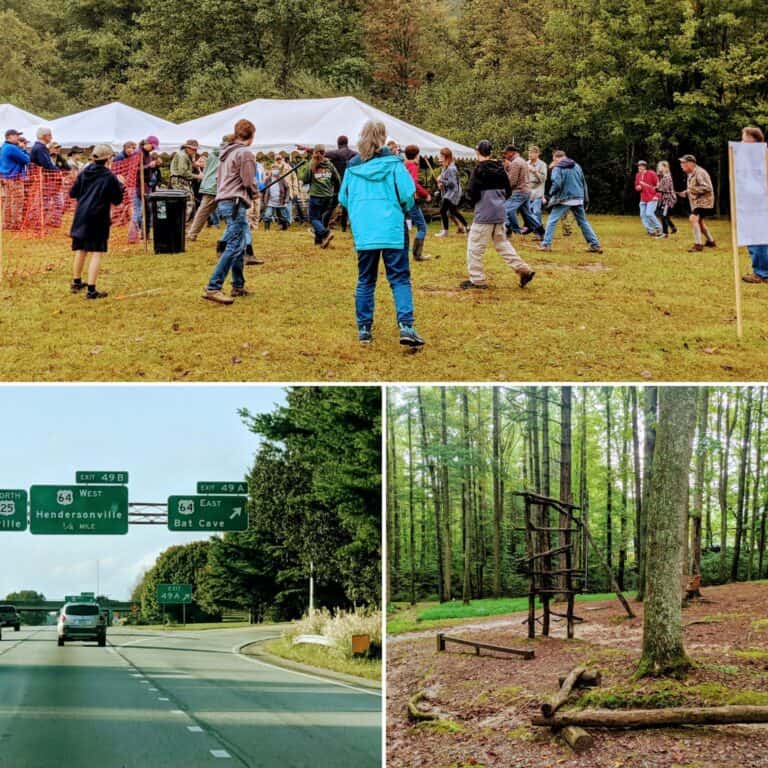
This little town in the Blue Ridge Mountain area is home to roughly 713 people. This is also the region of the state where the father of the prepper movement, William R. Forstchen lives.
The One Second After trilogy author lives in the Black Mountain region and is a history professor at nearby Montreat College.
The Saluda, North Carolina region is a lot like the Vinton County region profiled in the Best Place For Preppers To Live Ohio report – except it is surrounded by mountains instead of the hills of Appalachia.
In addition to Forstchen, two other famous folks called this area of Western North Carolina home: Alamo heroes James Butler Bonham and William Barett Travis.
Western North Carolina – WNC
When many folks think of North Carolina images of highly commercialized beaches first come to mind. You will not find any of that in this prepper haven.
Lake Adger is beautiful, but it is definitely not the ocean nor does the area typically attract the spring break party crowd.
The region of Western North Carolina along the eastern state boundary is commonly referred to as Western North Carolina.
The geographical region is defined by the transitional terrain of the Piedmont Plateau of the central region of the state and the hills between the Appalachians.
The Western North Carolina region is home to the highest mountains in all of the eastern portion of America. There are 125 mountain peaks that rise to more than 5,000 feet in elevation.
The WNC is also sometimes lumped in with the upstate area of South Carolina and dubbed the “Western Carolinas”.
Roughly 15 percent of the people in North Carolina live in the WNC region.
Western North Carolina is located just east of the Tennessee state line. There are extremely few urban areas in the WNC.
Asheville, North Carolina is the largest metropolitan area in this region. The Blue Ridge Mountains and the Great Smoky Mountains are the two primary ranges in Western North Carolina.
The Asheville area is often called the “Land of the Sky”. The areas of Boone and Bowing Rock are nicknamed “The High Country”.
The Fontana Dam is located in this region and is managed by the Tennessee Valley Authority.
The primary economic driver in the Saluda, Polk, and Henderson Counties is ecotourism.
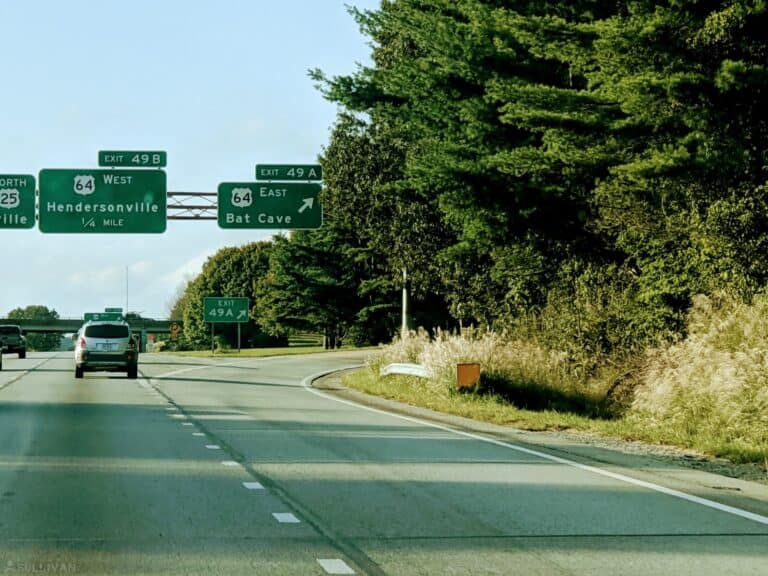
Folks travel to the Western North Carolina region to go fishing, whitewater rafting, mountain biking, canoeing, kayaking, hiking, and camping.
The WNC region is also home to the Eastern Band of Cherokee Indians – EBCI.
The tribe’s reservation is in an area known as Qualla Boundary adjacent to the Great Smoky Mountains National Park. The capital of the EBCI is located in Cherokee, North Carolina.
The WNC region including southeastern Tennessee, northeast Georgia, and the neighboring areas of South Carolina has been deemed the homeland of the Cherokee tribe.
Higher Education In WNC
If you have children or grandchildren that plan on attending college and you are looking for a small campus and one not likely filled with woke professors, this region has a lot to offer.
In addition to all of the unique learning environments available for students, the myriad of campuses also offers good-paying jobs in both academic and non-academic categories.
WNC Large Public Universities
- Appalachian State University in Boone
- University of North Carolina Asheville Campus
- Western Carolina University in Cullowhee
WNC Private – Small Colleges and Universities
- Montreat College – an affiliate of the Presbyterian Church – east of Asheville
- Mars Hill University north of Asheville
- Brevard College – an affiliate of the United Methodist Church – Brevard
- Lees-McRae College in Banner Elk – also an affiliate of the Presbyterian Church
- Lenoir-Rhyne University in Hickory – affiliated with the Evangelical Lutheran Church
- Warren Wilson College – one of nine work colleges in the United States, focused on environmental policies – in Swannanoa
WNC Community Colleges
- Asheville-Buncombe Technical Community College
- Blue Ridge Community College
- Catawba Valley Community College
- Caldwell Community College and Technical Institute
- Southwestern Community College
- Isothermal Community College
- Haywood Community College
- Mayland Community College
- Tri-County Community College
- McDowell Technical Community College
Population Density
There are only two towns with a population of 40,000 or more: Asheville and Hickory.
WNC Towns With 10,000 Residents Or More
- Hendersonville
- Boone
- Shelby
- Kings Mountain
- Newton
- Waynesville
- Lenoir
- Mount Airy
- Morganton
WNC Towns With Less Than 10,000 Residents
- Andrews
- Bakersville
- Banner Elk
- Beech Mountain
- Belwood
- Biltmore Forest
- Black Mountain
- Blowing Rock
- Boiling Springs
- Bostic
- Brevard
- Bryson City
- Burnsville
- Cajah’s Mountain
- Canton
- Casar
- Cashiers
- Catawba
- Cedar Rock
- Chimney Rock
- Claremont
- Clyde
- Columbus
- Connellys Springs
- Conover
- Crossnore
- Dillsboro
- Drexel
- Elk Park
- Elkin
- Ellenboro
- Fallston
- Flat Rock
- Fletcher
- Forest City
- Franklin
- Gamewell
- Glen Alpine
- Grandfather
- Granite Falls
- Hayesville
- Highlands
- Hildebran
- Hot Springs
- Hudson
- Jefferson
- Jonesville
- Lake Lure
- Lake Santeetlah
- Lansing
- Lattimore
- Laurel Park
- Lawndale
- Long View
- Maggie Valley
- Marion
- Mars Hill
- Marshall
- Mills River
- Montreat
- Mooresboro
- Murphy
- Newland
- North Wilkesboro
- Old Fort
- Polkville
- Rhodhiss
- Robbinsville
- Ronda
- Rosman
- Ruth
- Rutherford College
- Rutherfordton
- Saluda
- Sawmills
- Seven Devils
- Sparta
- Spindale
- Spruce Pine
- Sugar Mountain
- Sylva
- Taylorsville
- Tryon
- Valdese
- Weaverville
- West Jefferson
- Wilkesboro
- Woodfin
- Yadkinville
Four Areas Of Interest
- Collettsville is located in the Wilson Creek area.
- Deals Gap is located around a famous resort for motorcycle and sportscar fans..
- Lake Junaluska is located around the World Methodist Church Council and also the side of the church camp and conference center.
- Linville is a particularly popular outdoor recreation area in Western North Carolina.
Polk County
Towns in Polk County include: Saluda, Tyron, Columbus (county seat) Pea Ridge, Sandy Plains, Green Creek, Mill Spring, SandySprings, Rock Springs, Lynn, and Sunny View.
The town of Landrum, South Carolina is also a neighbor and quite viable for prepper families. Polk County encompasses 238 square miles.
Saluda is nestled in 18,000 acres of the Greenville Watershed and Green River Gamelands.
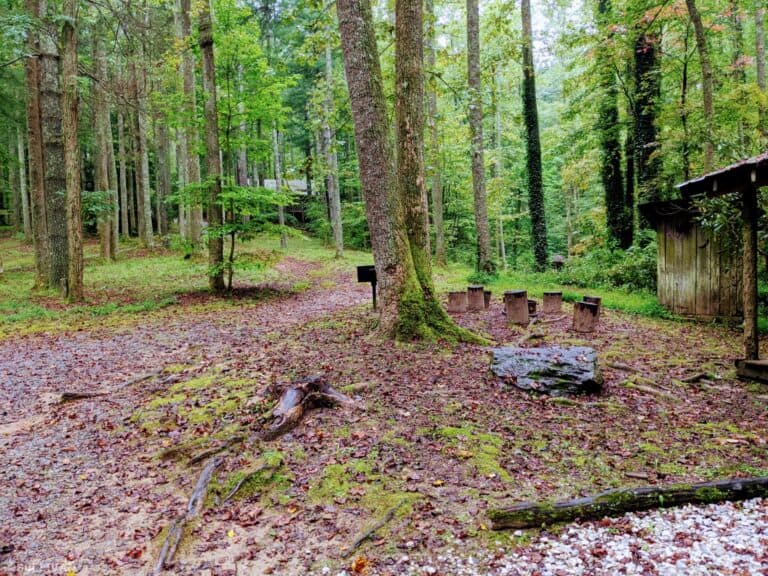
The natural resources required to effectively set up a sustainable survival homestead or prepper retreat.
This mountain town is also home to the steepest railroad grade in the whole of America.
According to the most recent United States Census figures, about 20,510 people live in this Western North Carolina county.
Polk County was created in 1855 using portions of both Henderson County and Rutherford County. It was named in honor of Revolutionary War colonel William Polk.
Henderson County
Towns in Henderson County include: Hendersonville (county seat) Mills River, Fletcher, Flat Rock, Laurel Park, Bat Cave, Mountain Home, Tuxedo, Gerton, Edneyville, Balfour, Naples, Dana, Horse Shoe, Zirconia, and Etowah.
Hendersonville has a population of roughly 14,155. Approximately 11,417 people live in this Western North Carolina County. Henderson county encompasses a grand total of 375 miles.
Prepper Family Homeschooling Fun
There are ample outdoor opportunities for learning in this county, as well as the rest of Western North Carolina.
Indoor engaging and hands-on learning activities for prepper homeschooling families also abound in this region of the state – and typically are offered completely free of charge.
North Carolina is a homeschooling-friendly state that requires parents to only have graduated high school and file a notice of intent with a local school district to begin the home education process.
Western North Carolina Air Museum
This is the first air museum in the state that, along with Ohio, claims to be the “first in flight”. Admission to the museum is free.
Henderson County Heritage Museum
This museum is housed inside of the county courthouse that is part of the Historic Register.
It houses artifacts, archives, galleries, historic demonstrations, and performances relating to regional culture.
Apple Valley Model Railroad Museum
A restored Hendersonville Depot (built in 1879) now houses a HO scale railroad replica of the Carolina Special that ran from Cincinnati to Charleston, South Carolina from 1911 through nearly 1970.
The train depot also houses historic artifacts, a Southern Railway caboose, and an interactive children’s exhibit.
Mineral and Lapidary Museum of Henderson County
The Henderson County Mineral and Lapidary Museum boasts exhibits relating to North Carolina, minerals, Indian artifacts, fluorescent minerals, gems, faceted minerals, fossils, and even a dinosaur egg. Admission to the museum is free.
Western North Carolina Crime
North Carolina is a fairly safe state overall, and the Western North Carolina region is not an exception.
The murder rate is highest in the region’s highest city, has had an annual murder rate as high as 10 to a record hitting 12, in recent years.
In other portions of the WNC, property crime, and low-level violent crime are the two most frequent types of illegal activity.
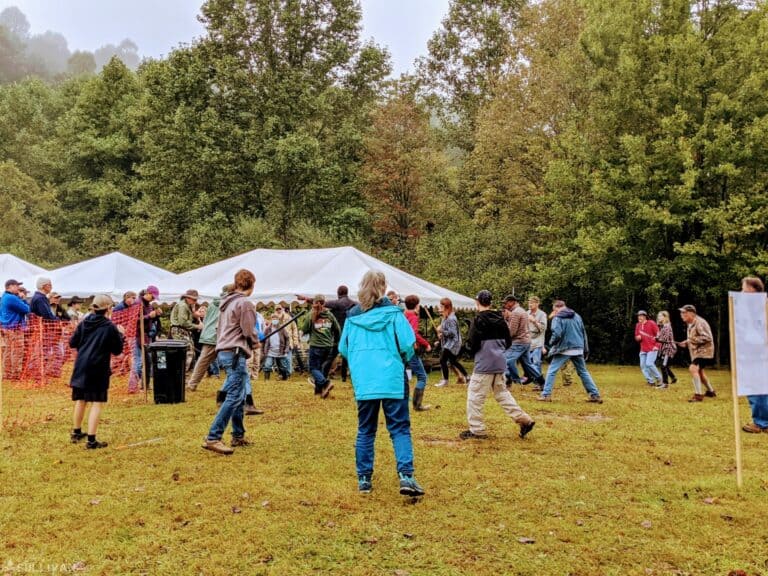
Prepper Community
The booming and welcoming prepper community in Western North Carolina is among the primary reasons why it was chosen as the best place for preppers to live in the state.
The number of prepping experts that call the region home and have been recognized in national media for their skills and expertise has to be a record for any other two-county area in the United States.
Rick Austin (aka the Survivalist Gardener) and his wife Survivor Jane are not only successful authors but also the hosts of the annual Prepper Camp gathering in Saluda.
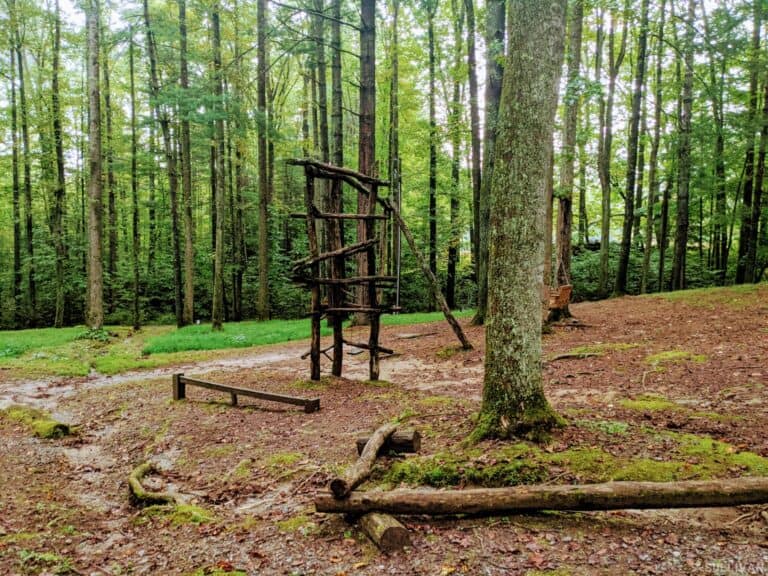
This 3-day was the first of its kind in the United States and draws several thousand preppers from around the country to Western North Carolina each September to participate in engaging and hands-on homesteading and survival classes.
PrepperNet also originated in this region of North Carolina before spreading out across the United States.
This online prepper community offers not just a place for like-minded folks to connect but also encourages them to have meet-ups in their regions and participate in survival events, like Prepper Camp, to encourage more folks to focus on self-reliance and community building.
Carolina Readiness Supply is far more than just another prepping store, it is also behind the Heritage Life Skills gathering each May in the Saluda, North Carolina region.
Folks gather for hands-on and interactive self-reliance skill-building training and community-building offered by survival and homesteading experts.
Dr. Bones (Joe Alton) and Nurse Amy (Amy Alton) also offer hands-on prepper medical courses in this region.
These amazing medical prepping classes are typically offered in Kodak Tennessee which is near Asheville and Sevierville, North Carolina.
Bug Out Camp, which is smaller and more low-key than either Prepper Camp or Heritage Life Skills, but still offers valuable training and prepper networking opportunities, also takes place annually in the Western North Carolina region.
Bug Out Camp takes place in October at the Stone Mountain State Park.
The abundance of natural resources and terrain that are advantageous to launch a successful and sustainable survival homestead combined with the sense of community and mutual assistance prepper families would be greeted within the region make Western North Carolina a superb place for self-reliant families.
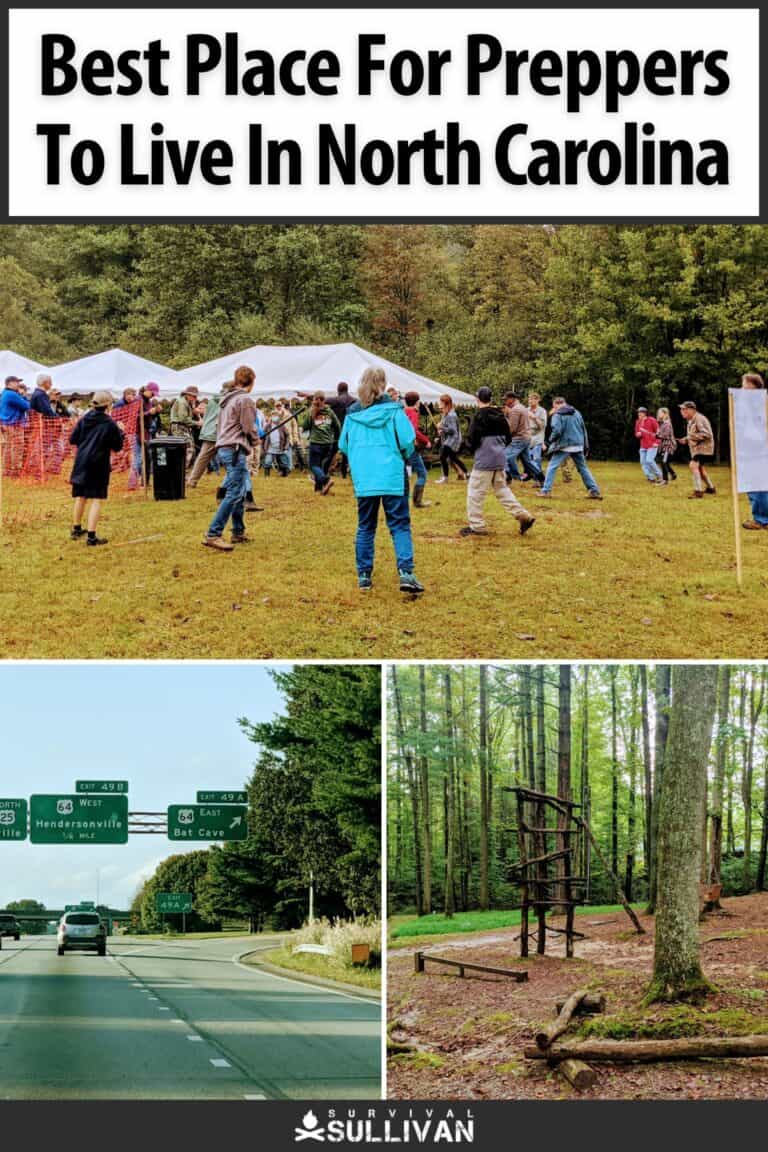

Tara Dodrill is a homesteading and survival journalist and author. She lives on a small ranch with her family in Appalachia. She has been both a host and frequent guest on preparedness radio shows. In addition to the publication of her first book, ‘Power Grid Down: How to Prepare, Survive, and Thrive after the Lights go Out’, Dodrill also travels to offer prepping tips and hands-on training and survival camps and expos.
